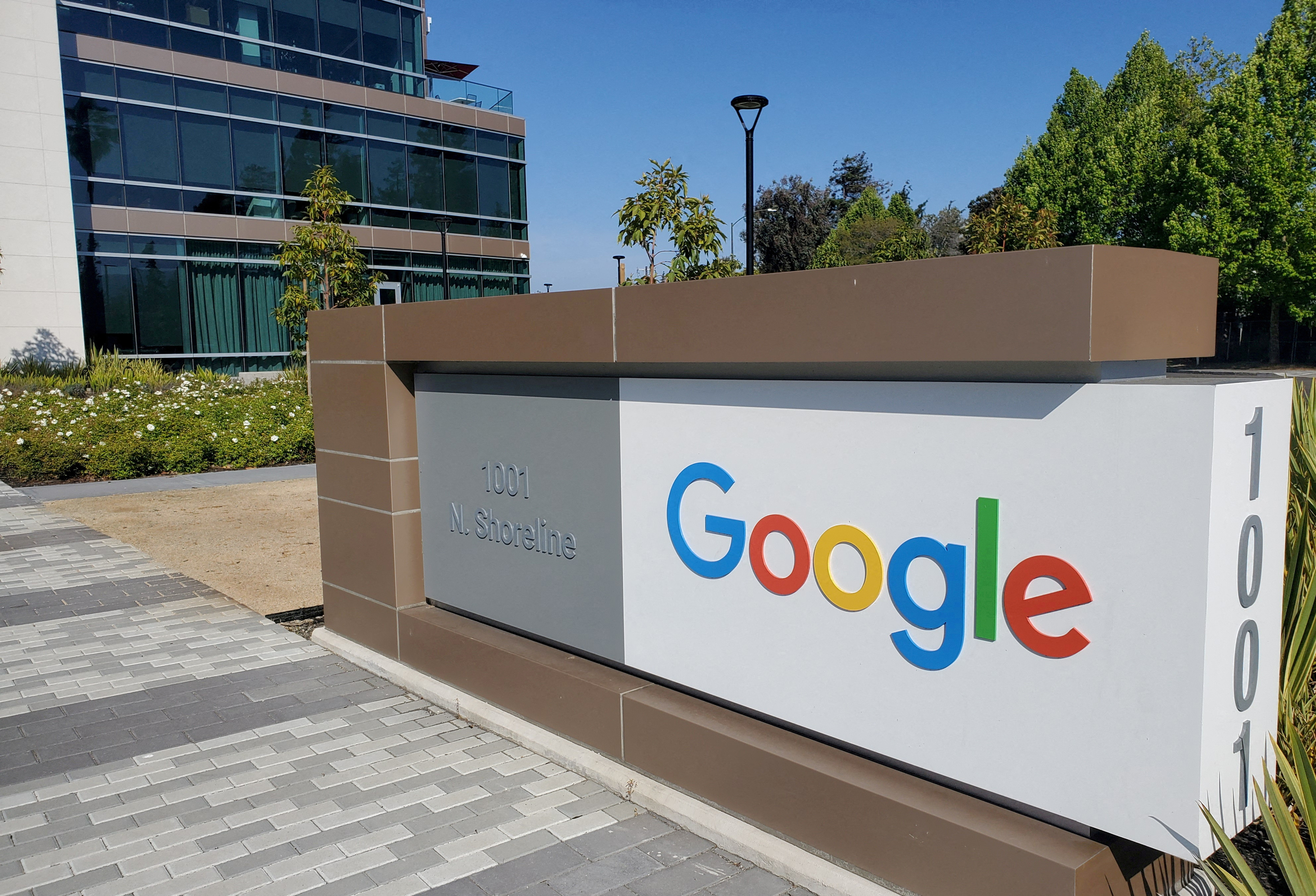
A banner is pictured outside a Google office near the company’s headquarters in Mountain View, California, US, May 8, 2019. Photograph: Paresh Dave/Reuters. Obtaining licensing rights
LUXEMBOURG (Reuters) – Alphabet Inc’s Google on Tuesday made a final effort in Europe’s top court to overturn a 2.42 billion euro ($2.6 billion) fine imposed by the European Union antitrust over market abuse related to its shopping service. Saying that regulators failed to prove that its practices were anti-competitive.
Google turned to the Court of Justice of the European Union (CJEU) after the General Court in 2021 rejected its appeal of a fine imposed by EU antitrust chief Margrethe Vestager in 2017.
It was the first of three penalties for anti-competitive practices that have cost Google €8.25 billion in total in the past decade.
Google’s lawyer, Thomas Graf, said the European Commission had failed to prove that the company’s different treatment of its competitors was abusive and that the different treatment alone was not anti-competitive.
He said: “Companies do not compete by treating competitors equally to themselves. They compete by treating them differently. The primary goal of competition is for a company to differentiate itself from competitors, not to align itself with competitors so that everyone is the same.” A panel of 15 judges.
“Categorizing every different treatment, especially the different treatment of first-party and third-party companies, as abusive would undermine competition,” Graf said. “It would weaken companies’ ability and incentives to compete and innovate.”
Commission lawyer Fernando Castillo de la Torre rejected Google’s arguments, saying the company used its algorithms to unfairly favor the shopping service to compare prices, in violation of EU antitrust laws.
“Google had the right to implement algorithms that reduced the appearance of some results that were less relevant to the user’s query,” he said.
“What Google had no right to do was use its dominance in general search to expand its position on comparison shopping by promoting the results of its own services, embellishing them with attractive features and applying algorithms that tend to push the results down from competitors and show those results without Attractive features.
European Court of Justice Advocate General Julien Kocout said she would issue her non-binding opinion on January 11. The European Court of Justice will issue its ruling in the coming months after its recommendation.
That case and two others involving the Android mobile operating system and the AdSense advertising service, though, pale in comparison to the ongoing EU antitrust case into Google’s lucrative digital advertising business, with regulators in June threatening to break up the company.
The case is C-48/22 P Google and Alphabet v Commission (Google Shopping)
($1 = 0.9353 euros)
Report by Fu Yunqi; Edited by David Evans
Our standards: Thomson Reuters Trust Principles.

“Reader. Infuriatingly humble coffee enthusiast. Future teen idol. Tv nerd. Explorer. Organizer. Twitter aficionado. Evil music fanatic.”
